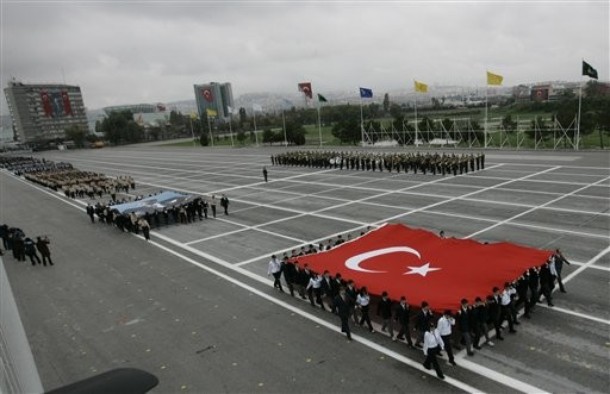
Judah Grunstein argues that we're emerging from an anamolous historical period into what could be dubbed the "normalization" of history, saying this is particularly evident with Turkey and China:
With all the discussion these days about U.S. and Western primacy and relative decline, it's worth considering what a normalization of history represents to the rest of the planet. For Turkey, it means deep ties with both the U.S. and Europe on one hand, and with China -- as well as Iran and Syria -- on the other.There are still a lot of caveats. China is operating under many constraints, including suspicions over its strategic and commercial intentions, but also the almost-universal fear among its trading partners of being overwhelmed by trade imbalances. But other South-South networks are emerging, with Turkey simply representing an early adapter in this process. That means that while the U.S. will continue to possess a disproportionate amount of power for the foreseeable future, we will find it increasingly difficult to wield that power effectively in order to translate it into influence.
The question is how American exceptionalism will adapt to the new normal that the rest of the world is busy preparing for. Recently we've done a good job of exploiting China's mistakes, particularly in Asia. But we should be putting more energy into exploring how to capitalize on Turkey's successes.
I think you can see the vague contours of this adaption in some of the Obama administration's policies: the fitful attempt to unwind America's entanglements in Iraq and Afghanistan, the effort to set relations with Russia on a more cooperative track, and the push to boost America's presence in Asia (with a corresponding "drift" away from Europe).
(AP Photo)



